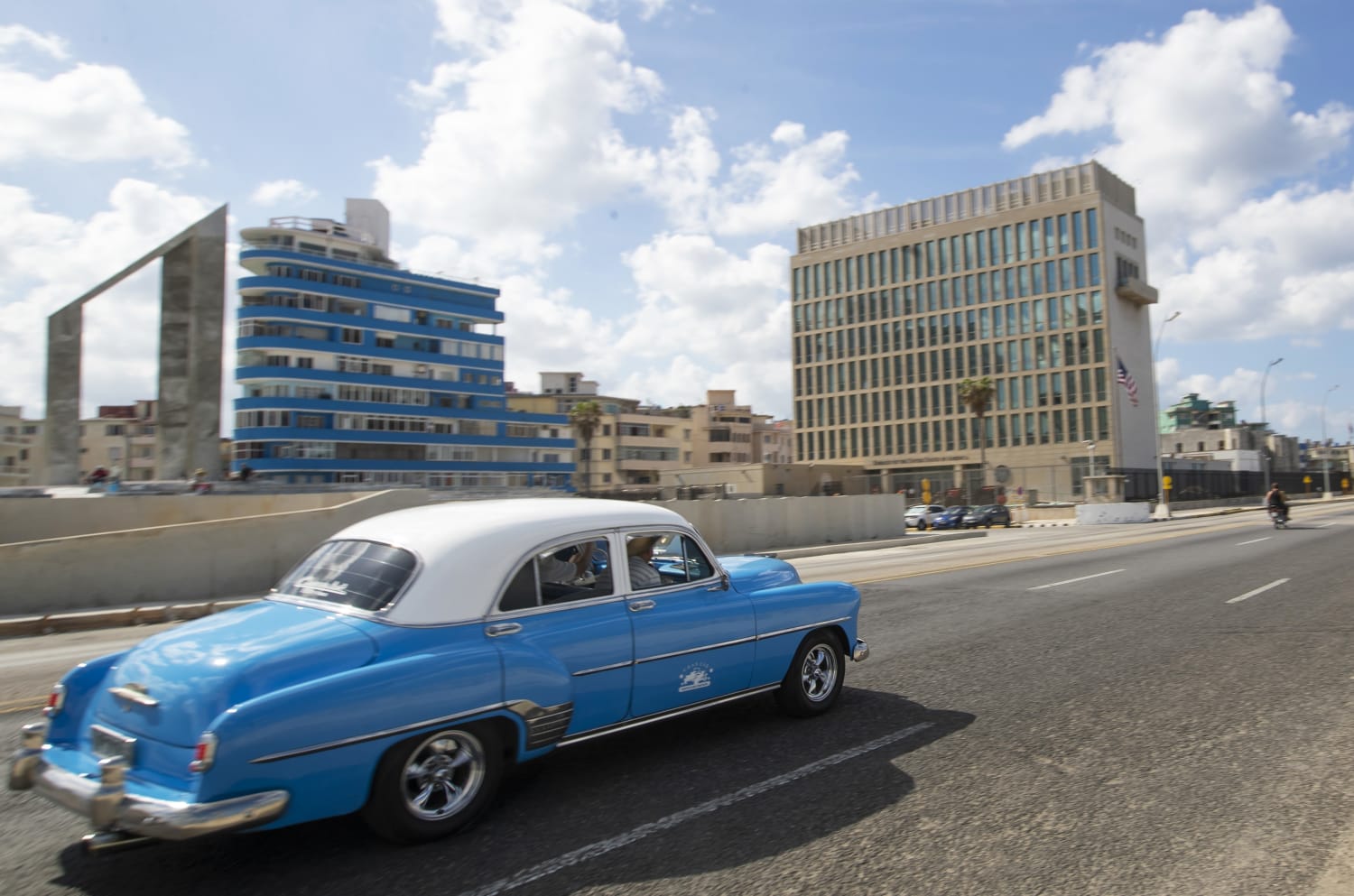[ad_1]

MIAMI — After years of relatively no cultural exchanges between the U.S. and Cuba, the U.S. Embassy in Havana has been hosting events, at times in collaboration with the Cuban government. Together with recent meetings between the two governments and delegations traveling to the island, a modest shift in the relationship has emerged.
One recent event, with American singer-songwriter Tonya Boyd-Cannon, was held in conjunction with Cuba’s Ministry of Culture. Documentary filmmaker Dawn Porter visited Havana in February for a series of exchanges with Cuban filmmakers. Porter’s visit, which was sponsored by the American Film Showcase of the State Department, was part of Black History Month celebrations, as was Boyd-Cannon’s.
A State Department spokesperson told NBC News, “As the embassy continues to expand its staff in Havana, we are developing public diplomacy programming to increase our direct engagement with the Cuban people.”
American jazz saxophonist Ted Nash played at the Jazz Festival in Havana in January and participated in a cultural event with music students at the Museo Nacional de Bellas Artes. Although his visit was organized by a U.S.-based foundation, it relied on help from both the U.S. and Cuba.
“The support that we’ve had for this project has been in some aspects groundbreaking, because we have had support from the highest levels of the two governments,” Cathy Barbash, president of the Barbash Arts Foundation, told NBC News during one of Nash’s events.
A spokesperson for the State Department said, “Cultural programs are a longstanding, integral part of our public diplomacy activities and are designed to connect directly with the Cuban people.”
Cuba’s Foreign Ministry did not immediately respond to a request for comment about the recent cultural exchanges.
Recent changes following tensions
The U.S. Embassy in Cuba recently reopened visa and consular services, the first time since the U.S. cut back most of its staff in 2017 following unexplained health incidents that were referred to as “Havana syndrome.” According to a recently declassified document, U.S. intelligence agencies have found no evidence linking any foreign adversary to the so-called syndrome.
But the embassy’s chargé d’affaires, Benjamin Ziff, told the Miami Herald in January that the imprisonment of hundreds of Cuban protesters stemming from islandwide protests in July 2021 is the “most serious obstacle” to further improvement in relations.
Throughout Joe Biden’s presidency, Cubans on the communist-run island have expressed dissent more than during any other period since the 1959 revolution.
Weeks after Biden was elected in 2020, Cuba’s Ministry of Culture became the center of attention when a rare protest spontaneously erupted outside of the building with young artists calling for greater freedom of expression on the island.
Though the protest was a surprising show of dissent, even more unexpected were the mass anti-government protests that broke out on July 2021, six months after Biden was inaugurated. In tightly controlled Cuba, the protests were met harshly by authorities. Over 1,500 were arrested and 675 remain in prison, according to Justicia 11J, an organization that keeps track of detentions.
Following Cuba’s crackdown, tensions were high between the two governments. Biden called Cuba “a failed communist regime” and the State Department released sharply worded statements condemning the crackdown. In early 2021, the Biden administration said in a statement that its foreign policy is “centered on the defense of democracy and the protection of human rights.”
After a lengthy review of Cuba policy concluded in May 2022, Biden expanded U.S. flights beyond Havana to airports throughout the island, relaxed limits on remittances, and restarted the family reunification program.
Migration talks between the U.S. and Cuba resumed as a historic number of Cubans left the island for the U.S. Engagement between the two governments on law enforcement issues also resumed in January with a U.S. delegation visiting the island.
A small delegation of Democratic congressmen traveled to Cuba in December and met with Cuban President Miguel Díaz-Canel. Another delegation from Delaware traveled to Cuba in January seeking ways to strengthen trade with the island. And Cuba’s Ministry of Science, Technology and Environment recently signed an agreement with the Ocean Foundation, a U.S.-based nongovernmental organization.
More changes?
Cuban officials have repeatedly called for the U.S. to take Cuba off the list of State Sponsors of Terrorism; the other countries on the list are Iran, North Korea and Syria.
But Cuba has to make a significant move in order for the Biden administration to take further steps, said Ric Herrero, executive director of the Cuba Study Group, a Washington, D.C.-based organization that supports engagement with the island.
“The Biden White House is not paying much attention to Cuba. They are almost entirely consumed by the war in Ukraine and the deteriorating relations with China,” Herrero said. “For Cuba to grab the attention of the decision-makers in the Oval Office, they will have to do something that advances their (U.S.) interest.”
Herrero, who has met with Cuban government officials, said he has pressed the issue of releasing political prisoners in order to improve the relationship with the U.S.
“Short of Cuba releasing political prisoners, we shouldn’t expect the Biden White House to take proactive steps towards improving relations,” he said.
Relations between the two countries have had highs and lows over the past decade. Then-President Barack Obama’s historic thaw in engagement with Cuba brought warmer relations, relaxed travel restrictions, and the first U.S. presidential visit to island since 1928.
But greater diplomatic ties came to a halt shortly after President Donald Trump took office in 2017. He reversed most of Obama’s policies, drawing condemnation from Cuba’s communist government. The relationship further deteriorated when Trump withdrew most embassy personnel later that year.
The U.S. Embassy in Havana is planning more cultural workshops, speaker programs, entrepreneurship training and other activities in the coming months.
Carmen Sesin reported from Miami, and Orlando Matos from Havana.
[ad_2]
Source link
